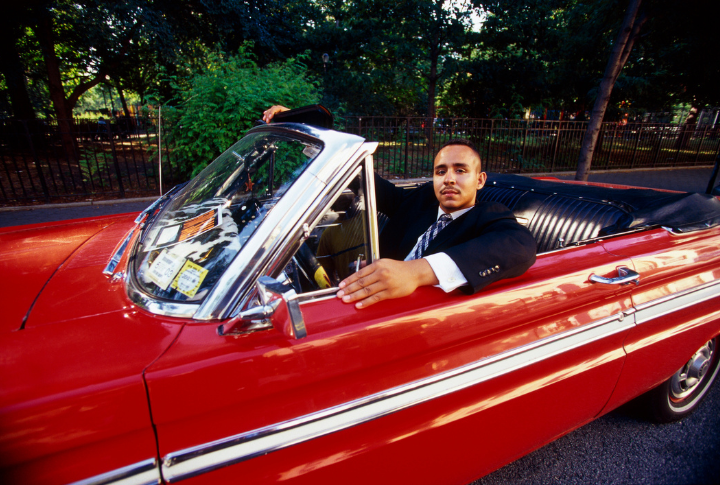
The Rewards and Risks of Long-Term Car Ownership

Keeping your car for a decade creates a unique bond throughout your journey and offers significant savings. It’s a commitment that goes beyond mere transportation. However, this extended ownership also comes with its own set of challenges, like increased maintenance needs and pricey repairs. Here are some of the joys and hurdles of maintaining your car for ten years or more.
Significant Cost Savings

One of the most immediate benefits of owning a car for over a decade is the cost savings. You avoid the expense of frequent new car purchases and the steep depreciation that hits new autos in their first few years. Upkeep and repairs may increase, but these costs often remain lower than the financial burden of buying new.
Familiarity and Comfort

Over time, owning the same car fosters a unique intimacy. You become familiar with the subtle changes in engine sound that might signal a loose belt or how it handles a specific corner on your commute. This understanding fosters a more comfortable and less stressful driving experience. You can anticipate how your car will respond in varied situations.
Customization Opportunities

With an older car, you may be more inclined to customize or modify it to suit your tastes better. From performance upgrades to aesthetic changes, keeping a car for a long time can give you the freedom to make it your own. Additionally, it is cheaper to modify an older car as modded parts are usually tried and tested.
Potential for Higher Repair Costs

As cars age, they naturally require more frequent maintenance and repairs. This includes regular replacements for timing belts, water pumps, and suspension parts. However, even with good maintenance, older cars are more susceptible to unexpected breakdowns and potentially expensive repairs. The good news is that the likelihood of this can be minimized by choosing a reliable model and taking proper care throughout its lifetime.
Technology Lag

Having a car for ten years or more means you’ll miss out on the latest technological advancements in safety features, fuel efficiency, and infotainment systems. Nonetheless, some people prefer the simpler technology of older cars, and the advancements may not always be significant upgrades depending on the make, model, and update cycle.
Insurance Savings

Older vehicles with a lower market value typically have lower comprehensive and collision coverage costs because the payout would be less in case of a total loss. Still, your driving record and location play a more prominent role in determining these costs. If your car qualifies as a classic and is stored securely with limited use, you might be eligible for lower insurance premiums.
Environmental Impact

Keeping a car for a decade-plus can be environmentally friendly compared to frequently buying new ones. Manufacturing new vehicles requires significant resources and energy, so extending the life of your current car can reduce your overall environmental footprint. Even so, be wary of your car’s condition, as some will need some tuning to avoid polluting the environment with their emissions.
Dependability Decline

While some cars remain dependable for many years, others might show wear and tear signs affecting reliability. Regular maintenance can significantly improve a car’s lifespan, but eventually, most vehicles will experience a decline in dependability.
Resale Value Drop

The resale value of a car generally decreases as it ages. After a decade, your car’s resale tag might be significantly lower, making it less appealing to sell. However, it might retain more value if it’s a well-maintained classic or a model with a strong enthusiast following. Some classics, like the Porsche 911, are known to increase in value over time.
Increased Rust and Corrosion

Older autos are increasingly susceptible to rust and corrosion, especially if constantly exposed to harsh weather conditions. Regular washing and protective coatings can help, but eventually, most cars will show signs of aging in this regard.
Parts Availability

As cars age, finding spares can become challenging. Manufacturers may discontinue parts for older makes, forcing you to rely on aftermarket suppliers or used components, which can be hit or miss in terms of quality.
Opportunity for Restoration

If your car has sentimental value or is a classic, consider restoring it. Restoration can be a rewarding project that breathes new life into your old car, preserving it for future generations. However, be careful since you might find the restoration cost more than that of a new car or two, depending on the availability of parts.
Community and Clubs

Owning an older car can connect you with a community of like-minded enthusiasts. Car clubs and online forums can provide priceless resources, advice, and camaraderie, making your decade-long ownership even more enjoyable.
Sentimental Value

Cars often become part of the family, accumulating memories and sentimental value over the years. The longer you keep a vehicle, the more attached you might become to it, making it hard to part ways even when it starts to show its age.


